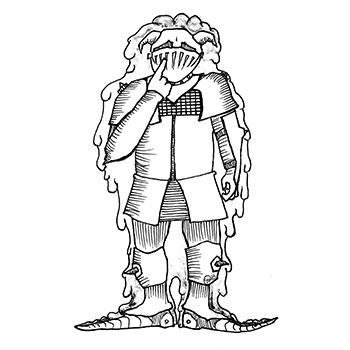
Related Questions
- What makes nerve gas so dangerous?
- Could I put a computer chip in my brain to make me smarter?
- Why do we sweat more in high humidity?
- How are thoughts measured?
- How does a random group of molecules form a thinking, breathing human?
- If I have a high risk of cancer, can my genes be modified to avoid it?
- How do doctors detect cancer in the human body?
- How could biotechnology affect sports in the future?
- Why do I have to take some medications every four hours but others only once a day?
- Why does our hair turn gray — as opposed to green or some other color — as we age?
Why do our bodies make boogers?
They’re a lot more useful than you know — you can’t live without them.
By Meg MurphyMucus is a life saver. It lines all body surfaces that are not covered by skin, which amounts to more than 2,000 square feet! Mucus lubricates your eyes, nose, and lungs; it prevents your stomach from digesting itself; and it staves off dental cavities, asthma, and inflammatory bowel disease, among other things.
Above all, mucus keeps your microbes in check, says Katharina Ribbeck, a biological engineering professor at MIT. Trillions of microbes live on and in your body. Indeed, you consist of more microbes than human cells, says Ribbeck, and most live in the mucus in your digestive tract.
Some microbes are the good guys, others are bad. The good ones are incredibly important for your health, helping you do things like absorb vitamins and digest food. The pathogenic microbes in the crowd, however, can cause infections and lead to all kinds of other problems (up to and including death).
Mucus is part of the armor that protects you. It forms a habitat where your beneficial microbes thrive and protect you from the damaging microbes. It tames the dangerous microbes with the help of mucins, which are molecules that look like tiny bottlebrushes and form the mucus gel. To keep up with the regular assault of pathogenic microbes and keep that armor strong, your body produces about a gallon of mucus daily, Ribbeck notes.
At her Laboratory for Biological Hydrogels, Ribbeck’s focus is on the basic mechanisms by which mucus barriers exclude or allow passage of different molecules and pathogens, and the mechanisms pathogens have evolved to penetrate mucus barriers.
“Over millions of years, our mucus has evolved the ability to keep a number of these problematic pathogenic microbes in check. It is an amazing thing,”Ribbeck says. “It’s a wonder that we are alive.”
Thanks to Abby and Samantha, age 6, from Arlington, MA, for this question.